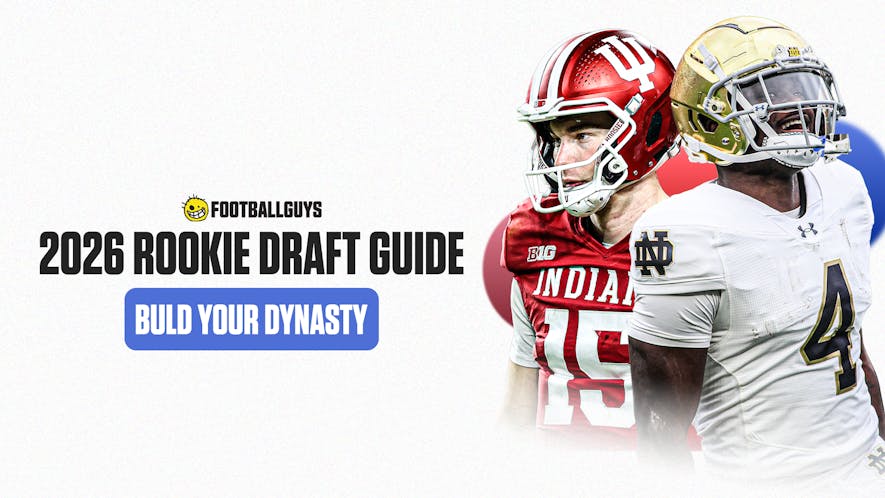Jason Wood: Contests with the lowest rake are the best. Sponsor-based tournament contests (where the sponsor subsidizes the rake) are where to go for "easy" money.
Steve Buzzard: Jason is absolutely right finding contests with the lowest rake are by far the easiest contest to beat. Most people over look this but a contest with 15% rake as compared to 10% is a bigger impact than playing the sharpest players in the game.
The other most beatable contests are the low stakes games. DFS is a skill game and the more a player has in a game the more likely they are to be skilled and hence a tougher opponent. When you are starting out you should start at the lower stakes games. If you have $25 to play sign up for 5 $5 games instead of a single $25 game.
Chad Parsons: I second Jason regarding the Sponsor-based contests. Most weeks there are a few out there if looking for them. Whether 50/50 types or more GPP-like, the rate of return is higher in these games. I strongly prefer to play lower stakes (but more entries). For example 25 entries at the $1-2 level instead of five entries at the $10 level.
Jeff Pasquino: Absolutely you should look for the lower rake games, but also be careful about chasing overlay. Overlay tournaments (ones that have excess prize money because the contest is not going to sell out) are usually geared towards paying the Top 20-25% when full - which means that, unless the contest is massively undersold (say 30+% or more) then the contest is still not going to pay out like a 50/50 or double-up.
To say that in a more clear way with an example, assume you have a GPP tournament that is designed for 1,000 entrants, with the Top 250 getting paid. For the contest to pay out like a cash game, it has to be HALF EMPTY (only 500 out of 1,000 entries sold).
So what does that mean? Do not just stick a cash game lineup in an overlay GPP tournament and expect to walk away with a tidy profit. You should have (at least) one GPP lineup that you really like each week for the purpose of chasing overlay in the last 30-60 minutes before lineup locks.
As for other contests that are better returns, I like 10-man contests that pay out the Top 3 spots. That's 30% payback and getting a Top 3 score seems easier (in my experience) than trying to get a Top 10% GPP finish, especially with just nine competitors. Considering that the top spot usually pays 4.5x or 5x the entry fee, I love playing those.
David Dodds: I contend that the easiest games on FanDuel right now are the 100-man contests. Many pros enter their cash and GPP lineups into these to get more volume in play, but I believe those approaches are sub-optimal. Only 12 spots pay and the prize pool is slanted towards constructing a lineup that can score around 180 points. That sounds like a GPP-style game, but low ownership means next to nothing with just 100 people in the contest.
I have found a successful approach is to build lineups that have correlated variance (example quarterback stacked with a wide receiver; running back stacked with a defense). There will be a lot of volatility playing these types of contests in this fashion, but I have found they have yielded my best ROI to date.
Chris Feery: Jeff and David made great points on the 10-man and 100-man contests. For the former, fending off nine opponents is not nearly as challenging as building a monstrous GPP lineup. Finishing in the Top 3 is completely doable, and these smaller contests are a great way to help build your bankroll. On the latter, a solid GPP lineup that may not make a whole lot of noise in a massive tournament can still offer up a nice reward. In addition to those two, smaller tournaments such as the minis provide similar opportunities to make as nice return against a smaller field.
For most slates, I’m entering lineups in a massive GPP, the most appealing mini, another tournament with a solid payout percentage, and the 100-mans. One of the keys to success in DFS is game selection, and payout percentage is a something that is often overlooked. If you investigate the GPPs, you may be surprised to find that there’s a lot of tournaments that pay less than 20 percent of the field. By extension, there’s also some oddballs that pay more than 20 percent of the field. Focusing on those increases your chances of cashing, and the top payouts in those will do me just fine if I knock it out of the park for the week.
Danny Tuccitto : I agree with everything everyone's said so far, so I'm going to throw a wild card out there that's specific to Draftkings, which is the site I play almost exclusively. This isn't so much about what has been beatable as it's about what will be more beatable in 2017 than past years.
OK, so here it goes. With Draftkings instituting their new rule regarding anyone with $1 million or more in lifetime entries being locked out of contests below a $5 entry or $25,000 prize pool, it stands to reason that the $3 featured GPPs on offer are going to have softer competition, and therefore be more profitable -- provided that the rake isn't increased to fill the gap, of course.

